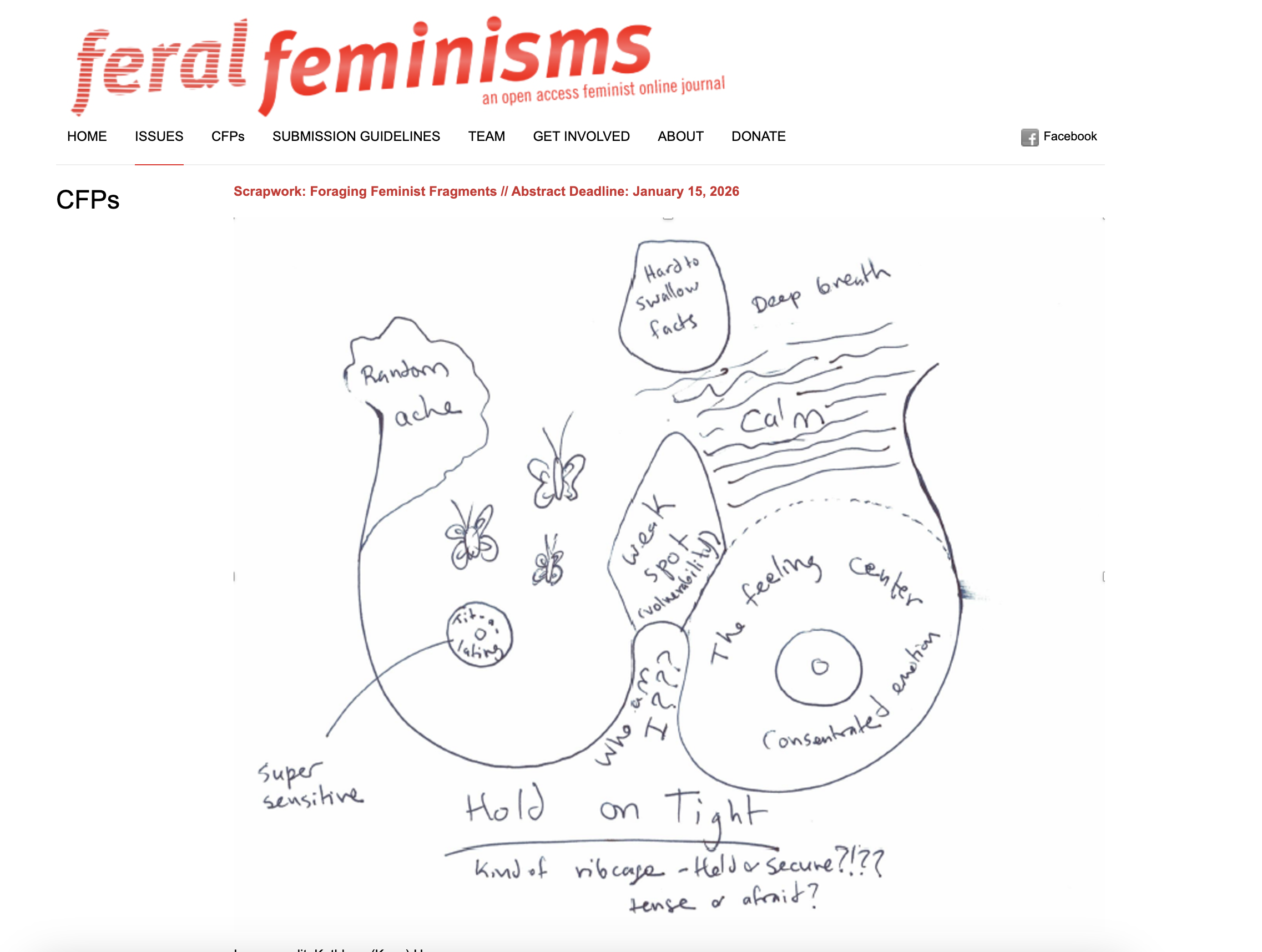I have three streams to my work: sexual and reproductive health education and communication; feminist arts-based methods; and experiential learning.
My work moves across pedagogy, technology, and care. I’m interested in how knowledge takes shape through bodies and relationships—how people learn, express, and make sense of complex experiences when words or systems fall short. Much of my research asks what happens when we slow down, listen closely, and make meaning through creative and collaborative ways.
Feral Feminisms
Special Issue
Dr. Amber Moore and I are co-editing a special issue of Feral Feminisms on SCRAPWORK
Here’s the call: https://feralfeminisms.com/cfps/
Erasure Poetry as Pedagogical Praxis
This project engages international students in exploring their roles in decolonization and in processes of reconciliation and reconstruction with Indigenous peoples in Canada. Using texts by Indigenous authors as source material, students create erasure poems that prompt reflection on respect, listening, and relationality. Through this process, we consider what it means to choose, alter, and share responsibly while living and learning on Indigenous Lands.
Connected Grants: EDID Initiatives Fund (Federation for the Social Sciences and Humanities) and UCW Discovery Innovation in Teaching Grant
Provoked Knowledge (Flare Collective)
In this collaborative project, we examine the affordances of conversations about women’s health that emerge in community and connective spaces. Grounded in the podcast Tight Lipped, which shares stories of vulvar and vaginal pain, we explore how feminist counterpublics enable experiences of validation, solidarity, and collective meaning-making. We consider how these shared narratives open possibilities for reframing women’s health through care, connection, and embodied knowledge.
Connected Grant: UCW Discovery Explore Grant
Technofeminism, AI, and Infertility (Flare Collective)
This study investigates how women encounter and engage with artificial intelligence in infertility care, generating early qualitative insights to inform the development of more ethical and responsive technologies. Framed through a technofeminist lens, the project traces the co-construction of gender and technology within diagnostic and treatment processes, considering how women’s narratives can guide the imagining of more attuned technological futures in reproductive health.

